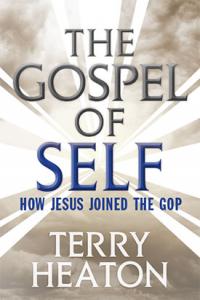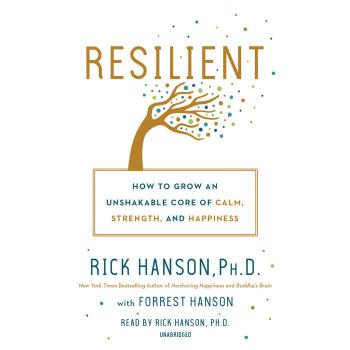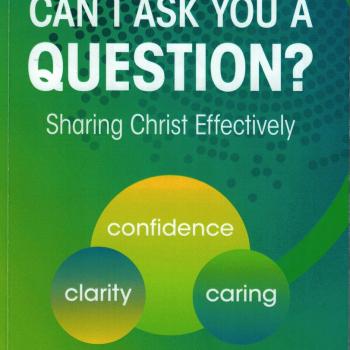The Gospel of Self by Terry Heaton
The Gospel of Self by Terry Heaton is a first-hand account. Heaton was the former right-hand man of Pat Robertson and one of the key players of the Religious Right. Heaton shows how the conservative Evangelical right influenced and eventually took over the GOP.
Insight: CBN Tactics Used Today
His insights were extremely fascinating. Heaton notes the many of the tactics used by modern cable news agencies like Fox. He shares how they were originally developed on the Christian Broadcast Network (CBN). Many of the same people who voted Donald Trump as president in the 2016 election were already listening to CBN. Heaton notes his responsibility by stating the following:
“All he had to do was to paint a black and white, dystopian view of America and offer himself as the solution. This is not original thinking, for all he was doing was repeating the things discussed in the back rooms of white evangelicals, and we at CBN were the ones who planted many of those thoughts.” (7)
“Christian or otherwise, the Republican Party is now so far to the right that it’s beginning to resemble historical fascism.” (10)
Heaton does a very good job at outlining how the theologians of the Evangelical Right (Hal Lindsey, Billy Graham, Pat Robertson, Jerry Falwell and others) influenced the political thinking of the people in the Republican Party.
Insight: Ministry Based on Selfishness
Another insight: Ministry, and especially giving can be based upon selfishness:
“What Pat Robertson taught me that day was that success in Christian television ministry began with tweaking the self-centered core of human nature.” (17)
“Selfishness and self-centeredness form the most dangerous epidemic facing Western Civilization today.” (21)
Heaton shares how he helped improve the quality of programming and graphics to Christian television.
“Evangelicals embrace the idea that everything in life is a choice…this is what makes them great Republicans.” (43)
Heaton shares the honest struggle of believing in prayer, but at the same time “faking” being healed (56-60). Heaton’s work at CBN bred that intolerance into Evangelical Christians (61).
“There’s an old joke that suggests there are three people the devil doesn’t want in hell: Billy Graham because he would get everybody saved; Oral Roberts because he’d get everybody healed, and Pat Robertson because he’d raise the money for air conditioning.” (73)
The healthy, wealthy and wise Word of Faith theology permeates Pat Robertson’s organization as well as his presidential campaign. This theology impacted politics in a way that one could not imagine. For example, Heaton makes the following profound statement:
“We had actually redefined what it meant to be a conservative Republican, and this was no small feat. We altered the balance of power in the GOP by bringing in millions of Christians who were able to look completely past the reality that Republicans represented the wealthy first. This was an amazing accomplishment, but one that has left our culture in a really bad situation, for fundamentalist Christians were a key element of Donald Trump’s election.” (138)
Insight: The Impact of Postmodernism on Today’s Culture
“Television news—and other forms of journalism of the future—will steadily drift away from the “professional” standard of objectivity and back to one that regularly incorporates argument into its soul. If you study postmodernism, this conclusion is inevitable, and it will produce—I predict—a change in the culture as significant and lasting as the American Revolution. Moreover, this change will occur outside the institution of journalism and in spite of its ongoing self-examination.” (159)
With this quote, Heaton shifts his biography to an analysis of the current postmodern culture. Entitled “CBN News, Fox News, and the Matter of Transparency,” the chapter is a good analysis of the bias that one will encounter because of postmodernism.
“Postmoderns look around and see ruin where the elites promised prosperity. The American Dream lives on only for the few, and the resulting anti-institutional energy is fierce and unrelenting. Technology has leveled the knowledge playing field. This has thrust the masses into unfamiliar territory. Only a few can apply this knowledge. The rational command and control of modernism is under assault by people who find greater comfort in anarchy than what they view as the false promise of the shepherds.” (164)
I love the fact that Heaton has addressed perhaps the most important difficulty in today’s media culture. No one trusts a particular news channel or aggregator. Because of this distrust, division along ideological lines will continue to increase. One current example is Fox News. As Heaton notes:
“Fox may present a balancing factor in press coverage of the news overall, but their perspective is entirely conservative, Republican, and Christian. No attempt is made to include the liberal point-of-view—except as pejorative—and this is why they are not transparent with their bias.” (166-167)
Another example of this shift is the fact that since the advent of the Internet, one does not have to trust immediate sources in a story.(171) Before, when one read a paper, one stopped at the footnote. When you read the footnote, you trusted that source as authoritative. Yet, since the use of hyperlinks, one could see where the footnote led. You could check the accuracy of the source. This changed the nature of trusting the author. This has implications in presenting news stories and facts. One now questions every story. There is an inherent distrust of the source.
Insight: Postmodern and Its Effect on the Church
Heaton ends his book with a brief introduction to postmodernism and its subsequent effect on culture, and especially the church. He proposes how postmodernism will change the church in what he calls a “post-Christian” era. Institutionalized churches like denominational churches (and even non-denominational ones) will have less impact on the local culture. In its place, the church will change from a top-down structure of order to a chaotic, participatory form of church. Heaton compares the future post-Christian church to the Alcoholic Anonymous movement. In many ways, I agree with Heaton. I have found that megachurches will survive. However, churches that serve fewer people will struggle to make it in the post-modern post-Christian era.
For people who wonder why evangelical Christians voted for Donald Trump, this book provides an answer. Postmodernism is changing the nature of the church. This book will also help the reader find some answers.
Disclosure of Material Connection: I received this book free from the author and/or publisher through the Speakeasy blogging book review network. I was not required to write a positive review. The opinions I have expressed are my own. I am disclosing this in accordance with the Federal Trade Commission’s 16 CFR,Part 255.













